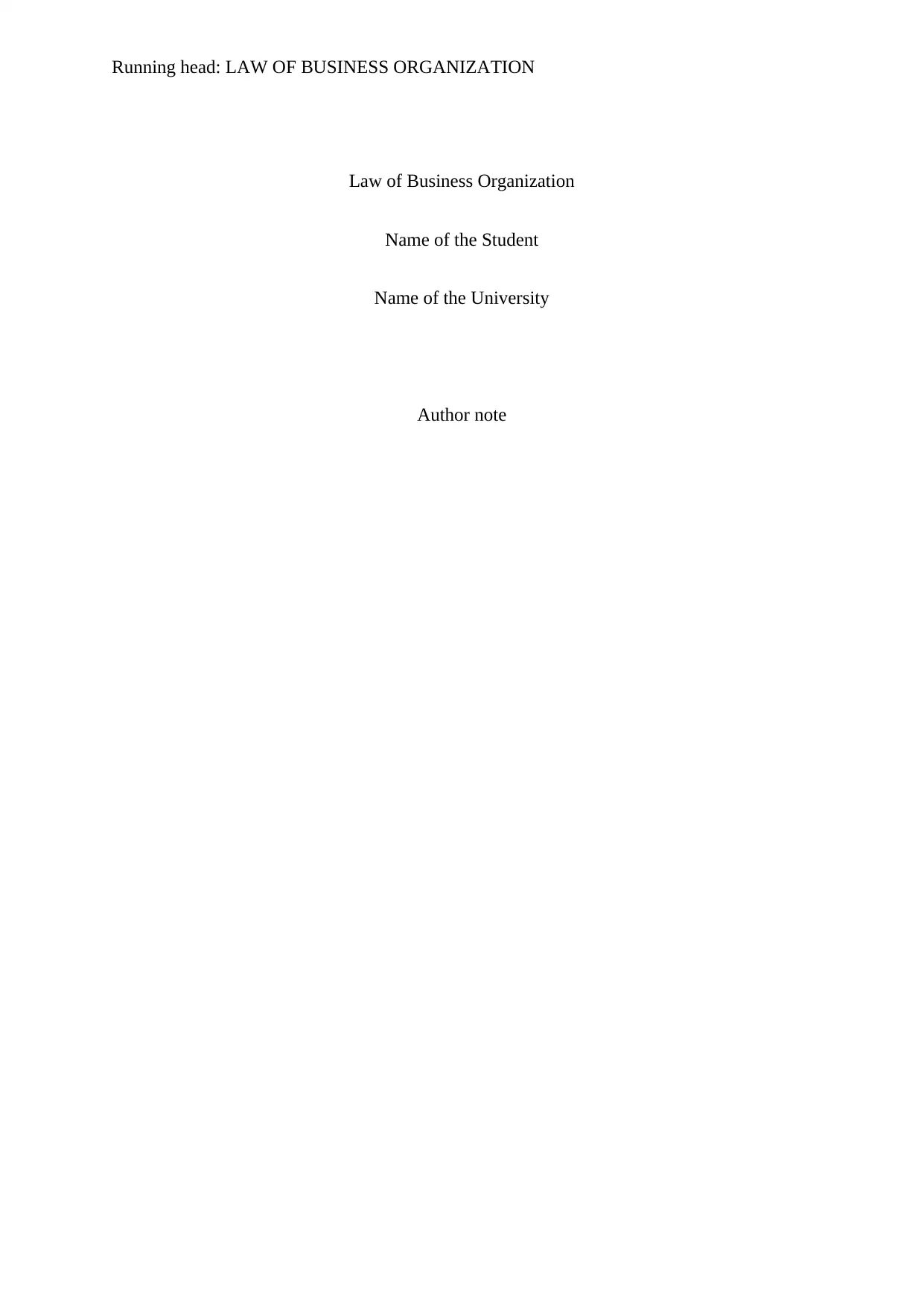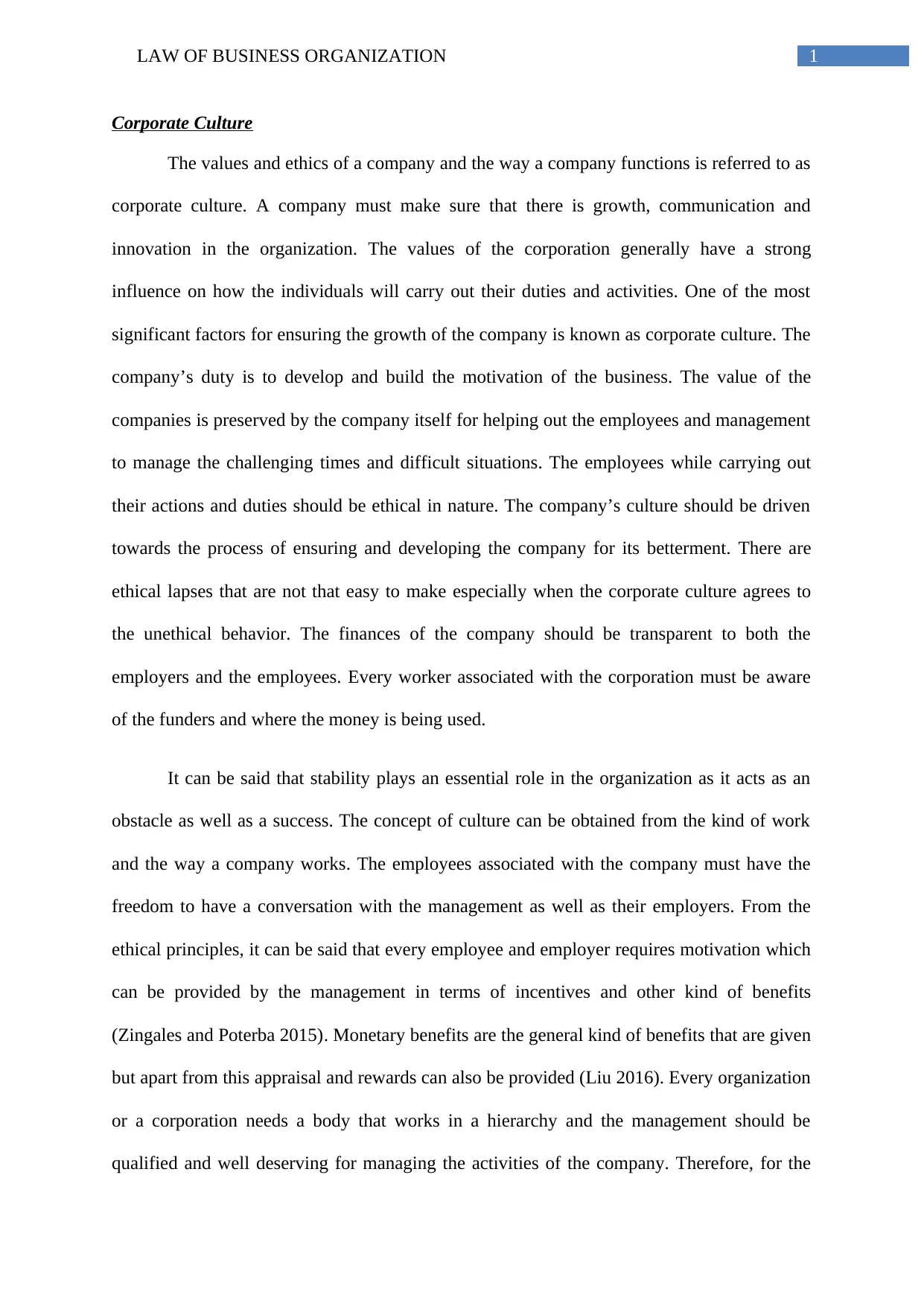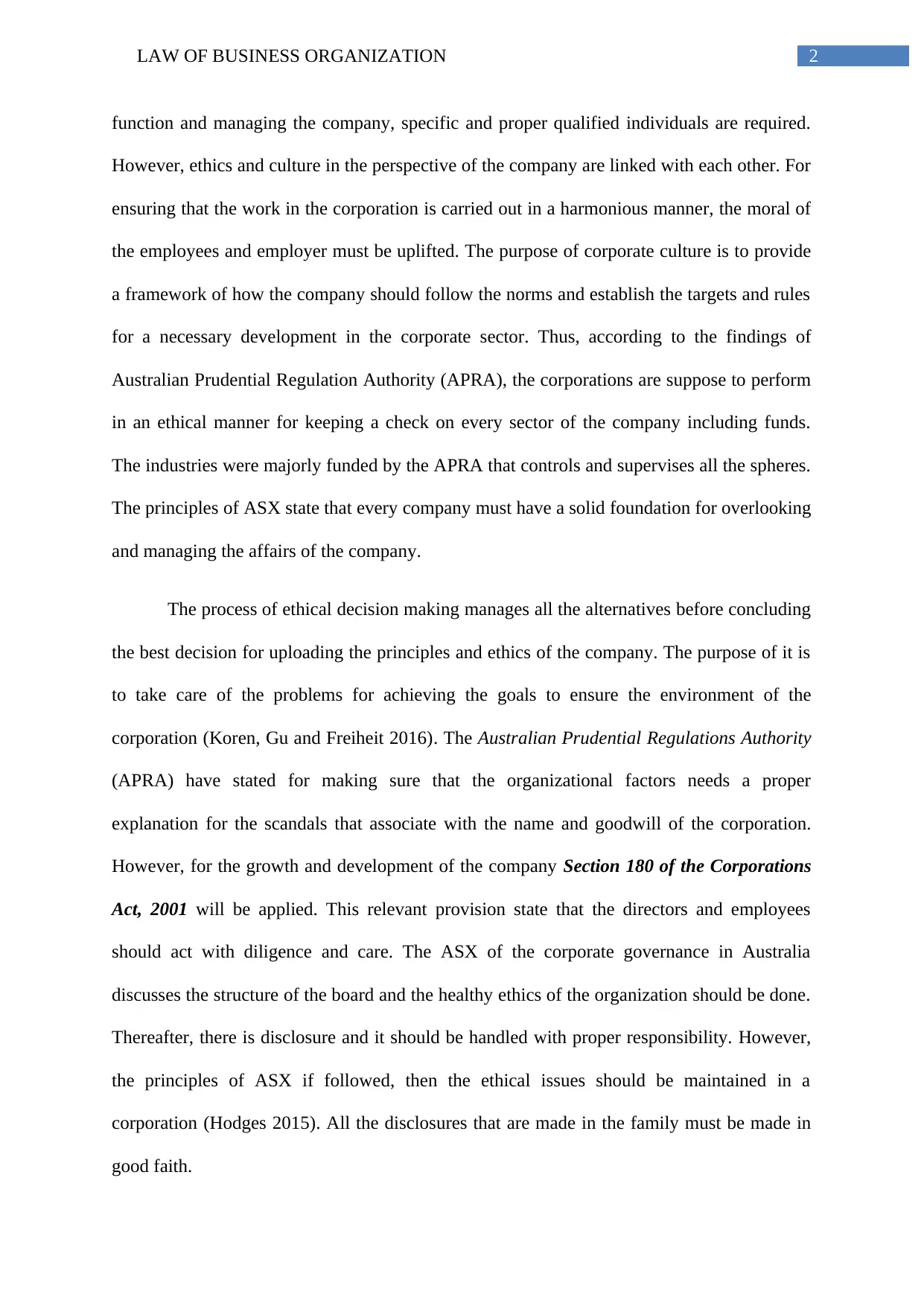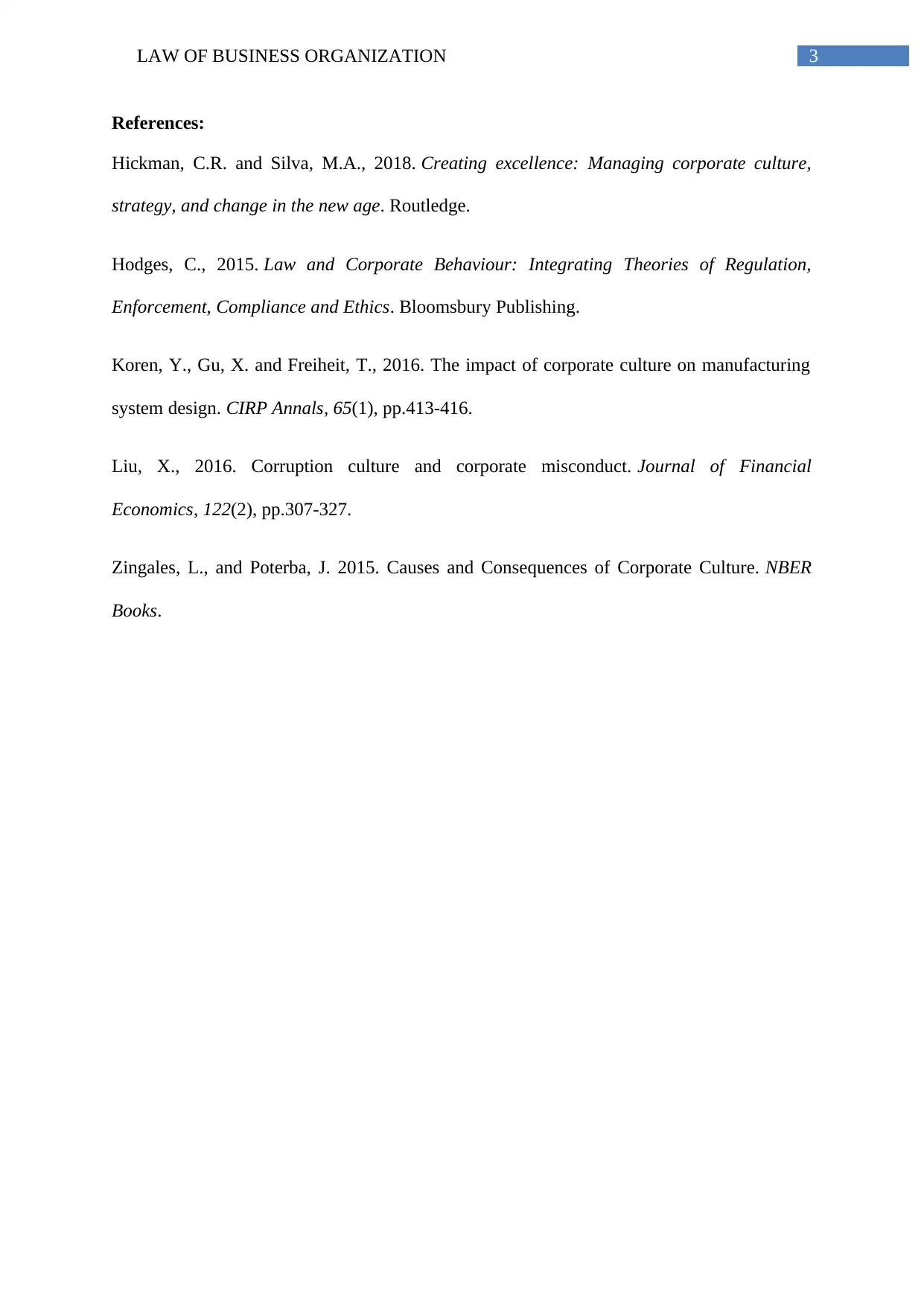Impact of Corporate Culture on Law of Business Organization
VerifiedAdded on 2023/06/12
|4
|931
|63
Essay
AI Summary
This essay delves into the intricate relationship between corporate culture and the law of business organizations, emphasizing the crucial role of ethics, communication, and transparency in fostering a healthy and productive corporate environment. It highlights how a strong corporate culture, guided by ethical principles, influences employee behavior and organizational performance. The essay also references the Australian Prudential Regulation Authority (APRA) and the Australian Securities Exchange (ASX) principles, underscoring the importance of regulatory frameworks and ethical decision-making in maintaining corporate integrity and preventing scandals. Furthermore, it mentions Section 180 of the Corporations Act, 2001, which emphasizes the duty of directors and employees to act with diligence and care. The analysis emphasizes that adherence to ethical standards and a well-defined corporate culture are essential for sustainable growth and success in the corporate sector.
1 out of 4










![[object Object]](/_next/static/media/star-bottom.7253800d.svg)